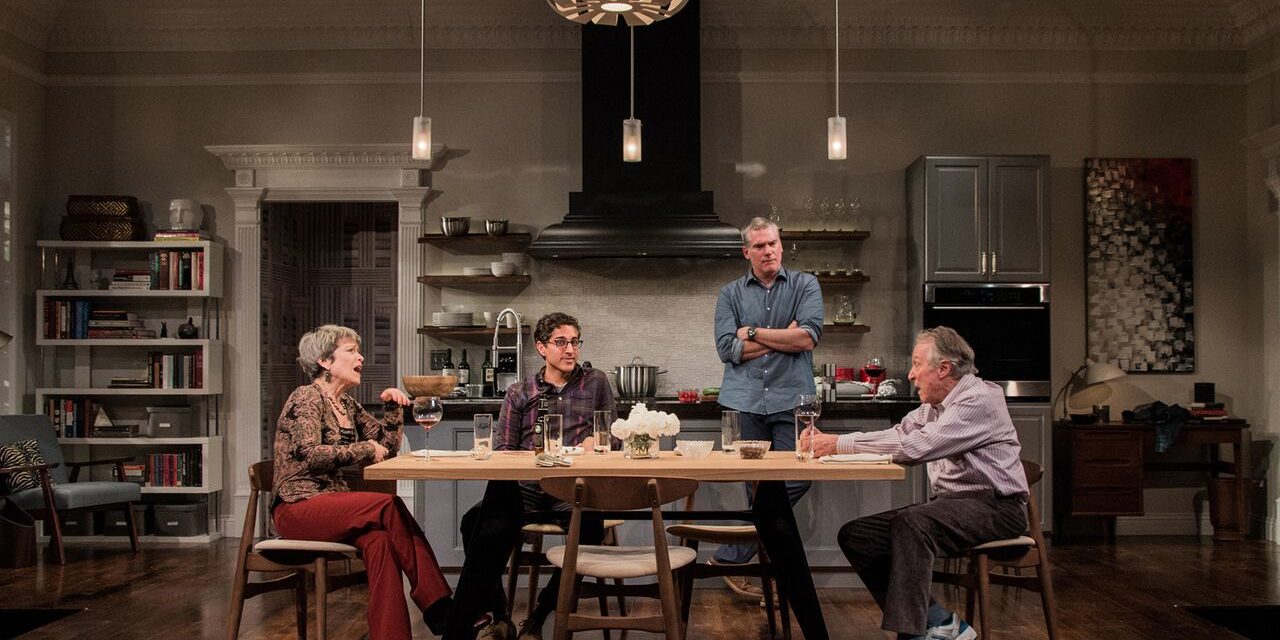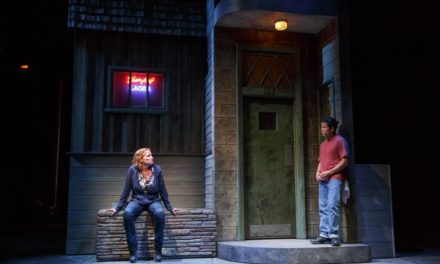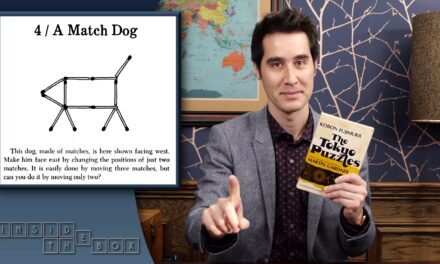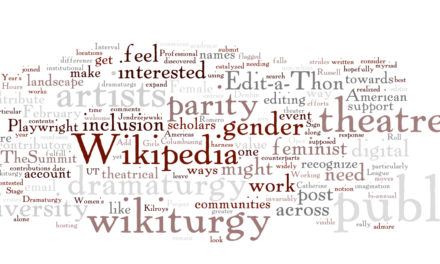Boston-based playwright Ken Urban has written the first major play about gay divorce, using the story of a male couple’s separation to address bigger issues about the social construct of marriage and, as he says, “the tragedy of loving someone.”
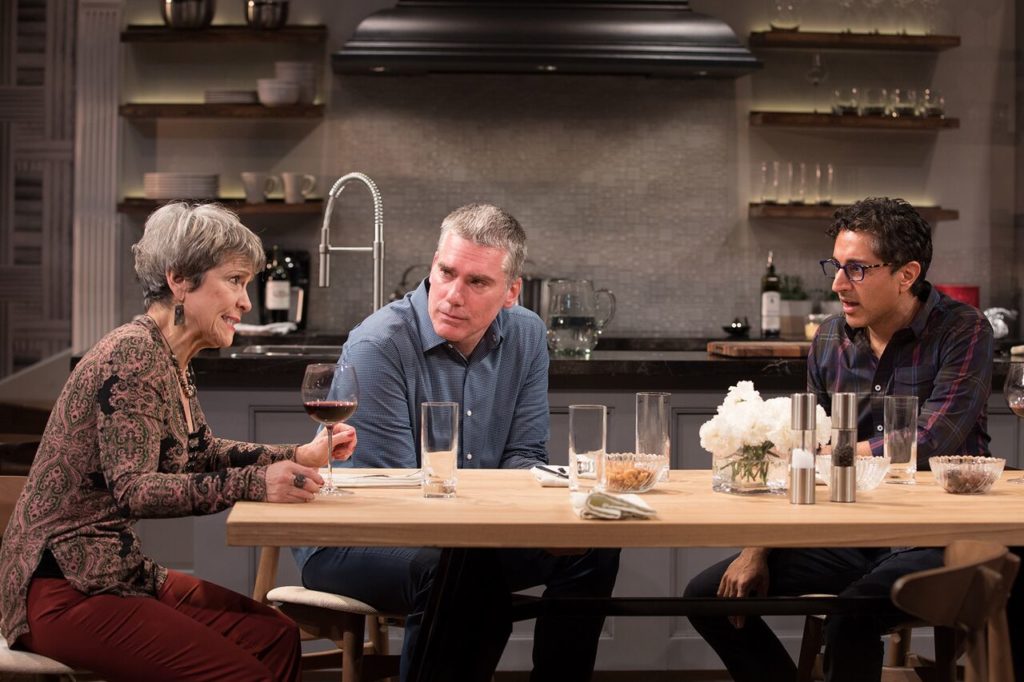
Naomi Jacobson, Glenn Fitzgerald, and Maulik Pancholy in The Remains. Photo: Teresa Wood.
The dissolution of straight marriages has been dramatic fodder for generations, from Noel Coward’s Private Lives to Donald Margulies’ Dinner With Friends. But playwright Ken Urban’s upcoming drama about gay divorce, The Remains–having its world premiere this spring at Studio Theater in Washington DC–is the first major play to address the subject.
“My country was celebrating something that was causing me a great deal of pain.”
“It’s about how marriage forces love into something it isn’t meant to be,” he says, “and the sad truth that a person who was once part of your life is no longer that.”
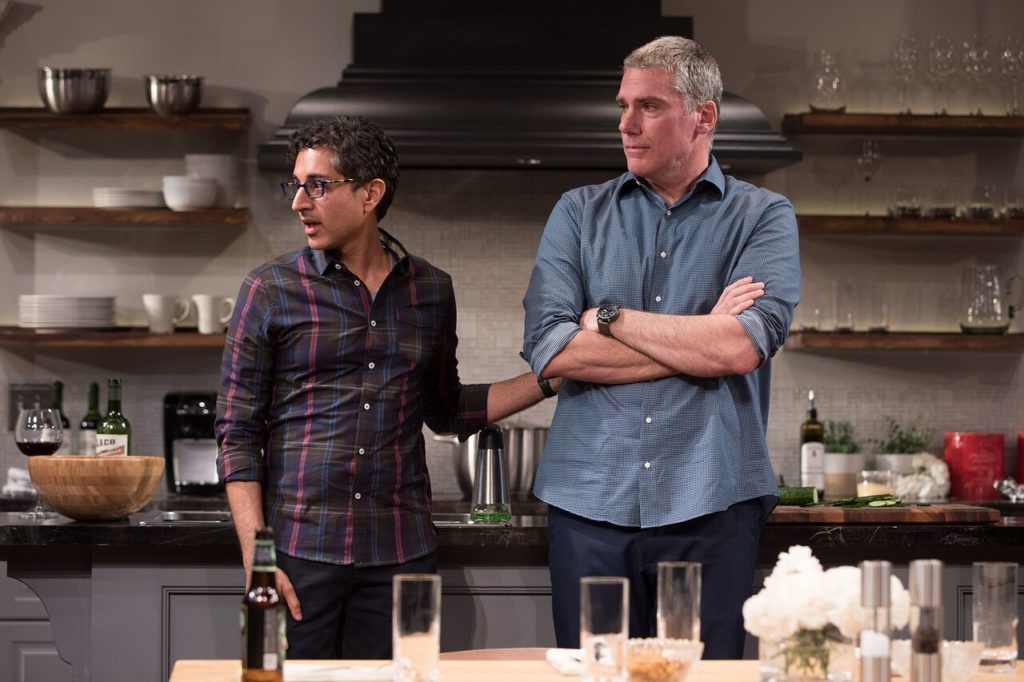
Maulik Pancholy and Glenn Fitzgerald in The Remains. Photo: Teresa Wood.
Along with a rising national profile for his stage plays, Ken also is wrapping up his first year as head of the playwriting program at MIT. He was available to talk about the personal journey that led to The Remains, and what he sees in the next generation of American playwrights.
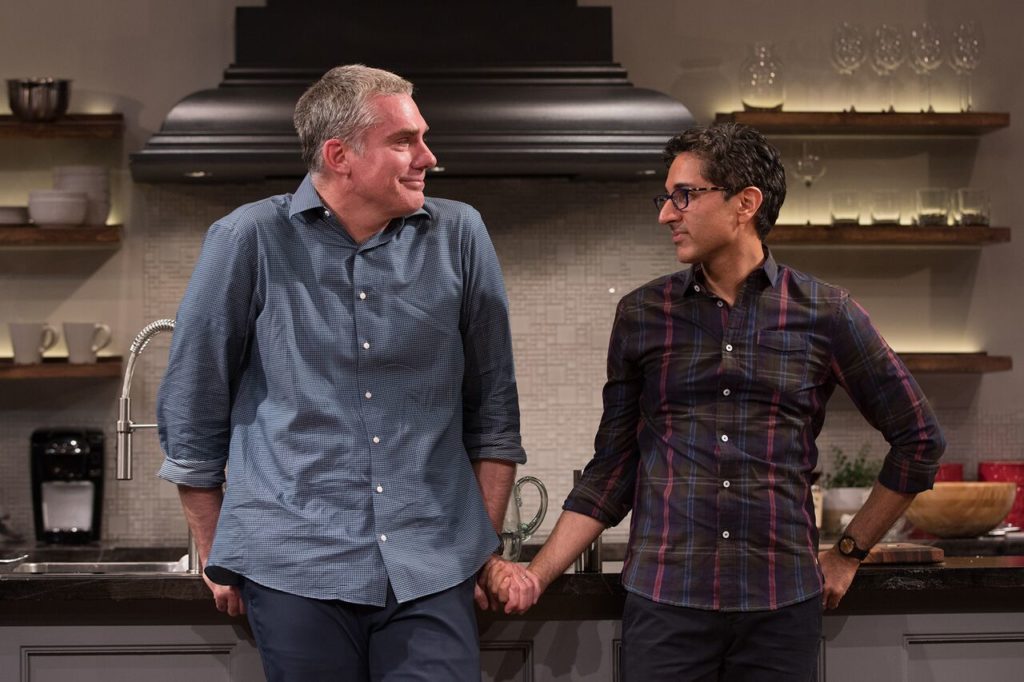
Glenn Fitzgerald and Maulik Pancholy in The Remains. Photo: Teresa Wood.
My husband and I filed for divorce in the spring of 2015. We had been together for 18 years, since I was 22. Then that June, the same-sex marriage ban was struck down by the Supreme Court. That strange disconnect and my thinking about the idea of the tragic came together. I was spending the summer at the Headlands Center for the Arts, up in the chilly hills outside of San Francisco, and I wrote the first draft of this play very quickly. It all came out of me. I wrote the first draft in 36 hours, no sleep. That’s the way to get a first draft done.
In what way the play is personal?
I would be lying if I didn’t cop to the fact that play is personal. But it is in no way autobiographical if that makes sense. I am not Kevin. But I figured everyone would assume I was so I just named the character Kevin to give myself a chuckle. There is a part of me in all five characters.
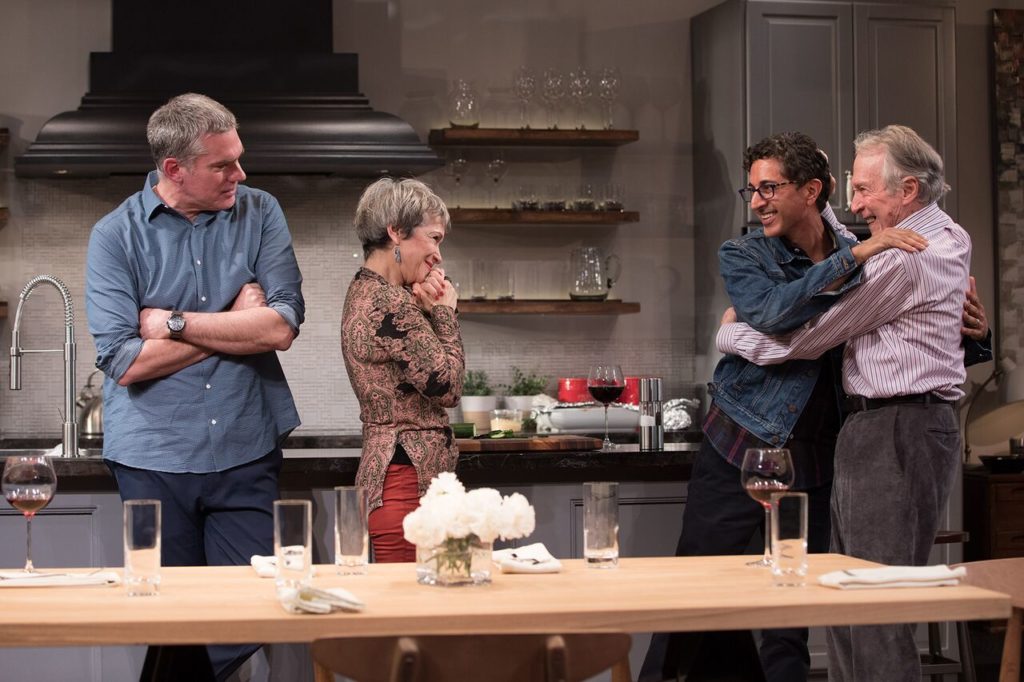
Glenn Fitzgerald, Naomi Jacobson, Maulik Pancholy, and Greg Mullavey in The Remains. Photo: Teresa Wood.
How different is gay divorce from hetero divorce? Is there really a difference?
The difference is that gay relationships have a lot of pressure on them to be successful because they are viewed as role models in a way that straight marriages are not expected to be. When I came out in the early 1990s and then met my partner of 18 years in 1996, we were often the only gay people that my friends and family knew. Certainly, we were one of the only long-term gay relationships that many people knew. So the idea that you have to be perfect is pretty intense.
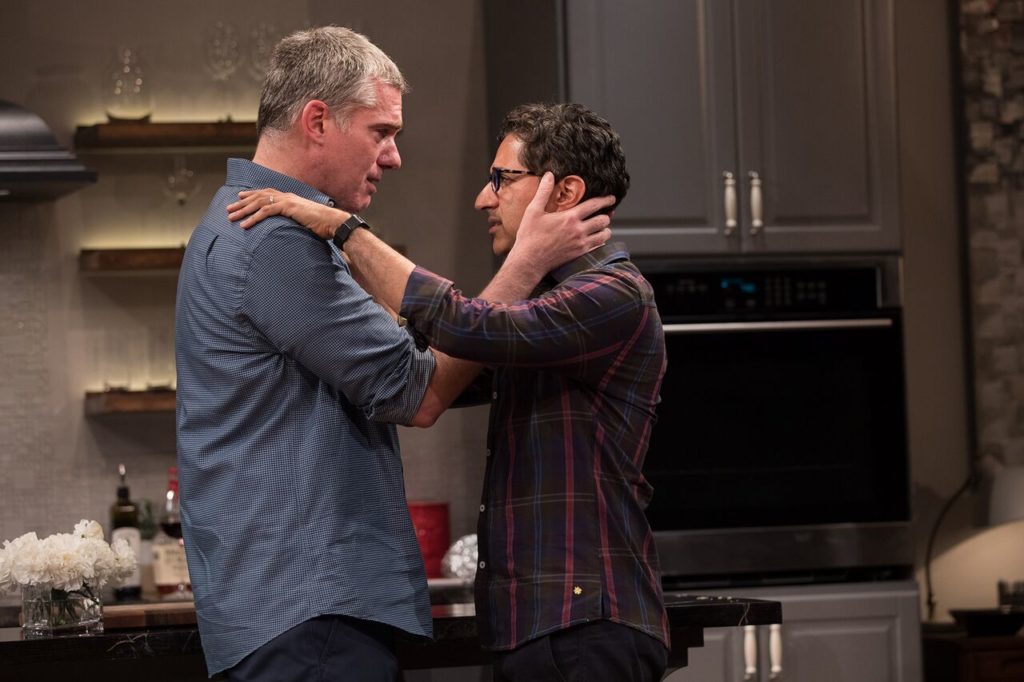
Glenn Fitzgerald and Maulik Pancholy in The Remains. Photo: Teresa Wood.
The play takes place in Boston’s upper class, elite environment. How has this setting influenced it?
I wanted to write a play about the rarefied world of Boston’s intellectual class because I was both a part of it (I taught at Harvard for 8 years) and an outsider (my Ph.D comes from *gasp* a state school). Having two professors in the play also allowed me to get into the philosophical ideas about tragedy more naturalistically.
The play is about loss. But of what? Intimacy, love, partnership?
All of the above. One never loses only one thing when a relationship ends.
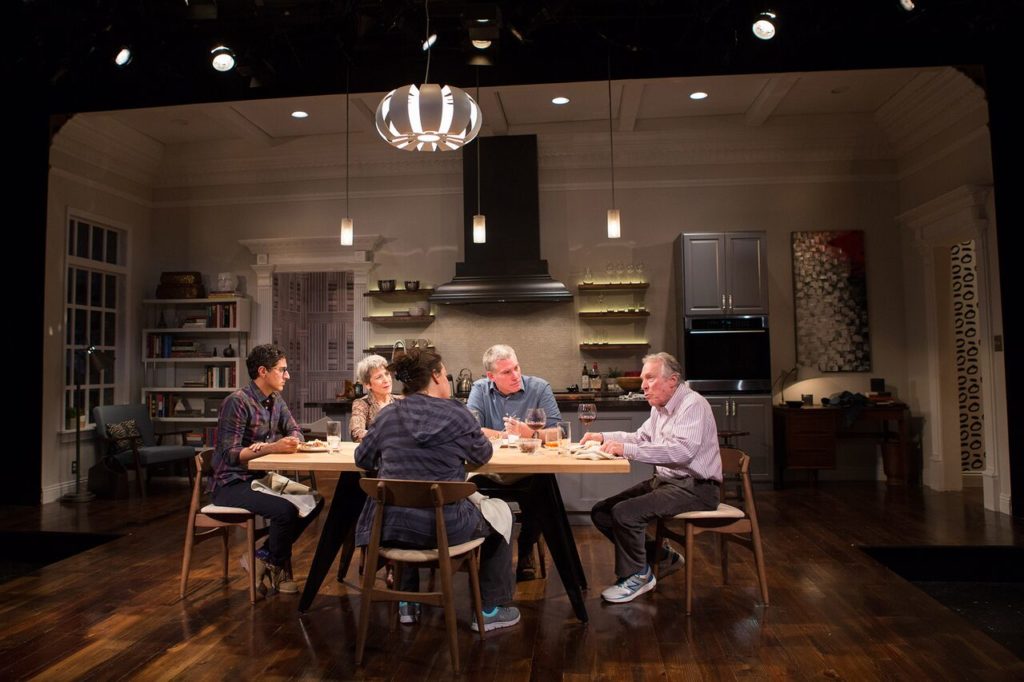
Maulik Pancholy, Naomi Jacobson, Danielle Skraastad, Glenn Fitzgerald, and Greg Mullavey in The Remains. Photo: Teresa Wood.
How does the politics play out in the play? If at all?
My job is to tell a compelling story with characters that an audience empathizes with, regardless of or in spite of how different or challenging their beliefs are. ANGELS is one of my favorite plays and what it taught me is that even an evil person like Roy Cohen has to be multidimensional or else why put him in your damn play.
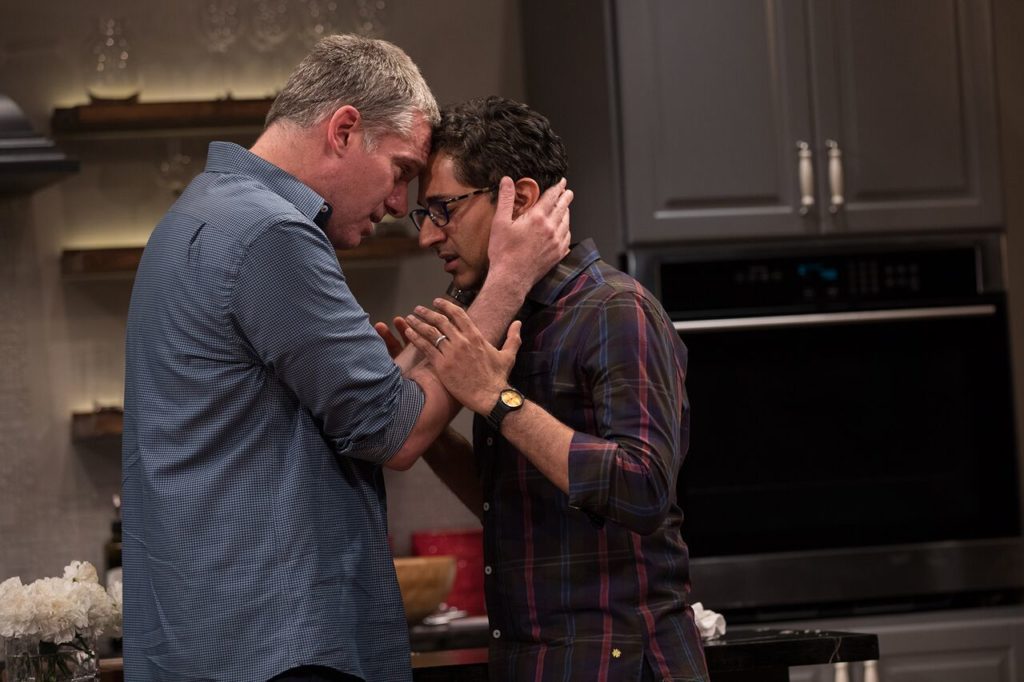
Glenn Fitzgerald and Maulik Pancholy in The Remains. Photo: Teresa Wood.
The Remains opens in May at Studio Theater in Washington D.C. (starring Maulik Pancholy of Weeds, 30 Rock, and Star Trek Discovery.)
This post was written by the author in their personal capacity.The opinions expressed in this article are the author’s own and do not reflect the view of The Theatre Times, their staff or collaborators.
This post was written by The Theatre Times.
The views expressed here belong to the author and do not necessarily reflect our views and opinions.

